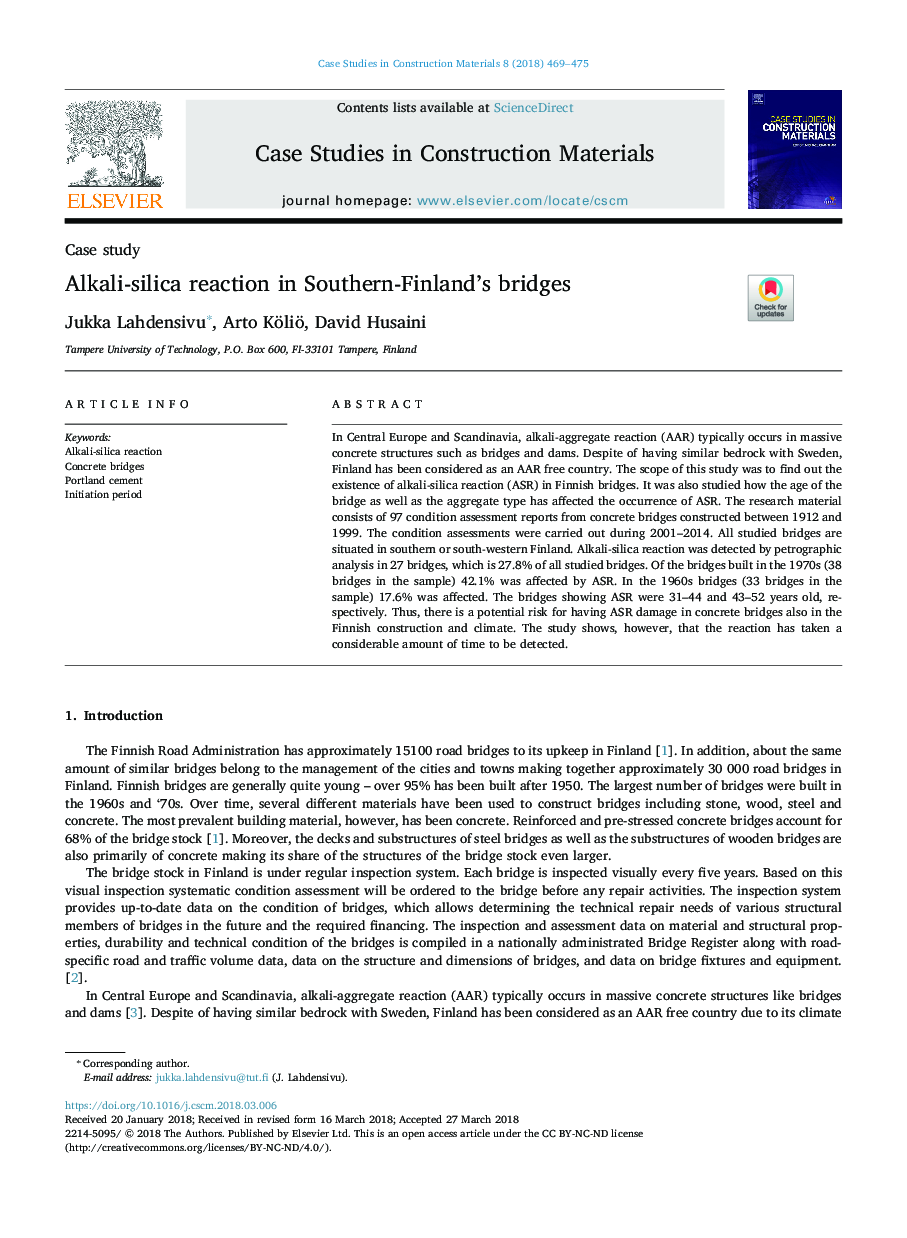| Article ID | Journal | Published Year | Pages | File Type |
|---|---|---|---|---|
| 6701957 | Case Studies in Construction Materials | 2018 | 7 Pages |
Abstract
In Central Europe and Scandinavia, alkali-aggregate reaction (AAR) typically occurs in massive concrete structures such as bridges and dams. Despite of having similar bedrock with Sweden, Finland has been considered as an AAR free country. The scope of this study was to find out the existence of alkali-silica reaction (ASR) in Finnish bridges. It was also studied how the age of the bridge as well as the aggregate type has affected the occurrence of ASR. The research material consists of 97 condition assessment reports from concrete bridges constructed between 1912 and 1999. The condition assessments were carried out during 2001-2014. All studied bridges are situated in southern or south-western Finland. Alkali-silica reaction was detected by petrographic analysis in 27 bridges, which is 27.8% of all studied bridges. Of the bridges built in the 1970s (38 bridges in the sample) 42.1% was affected by ASR. In the 1960s bridges (33 bridges in the sample) 17.6% was affected. The bridges showing ASR were 31-44 and 43-52 years old, respectively. Thus, there is a potential risk for having ASR damage in concrete bridges also in the Finnish construction and climate. The study shows, however, that the reaction has taken a considerable amount of time to be detected.
Related Topics
Physical Sciences and Engineering
Engineering
Civil and Structural Engineering
Authors
Jukka Lahdensivu, Arto Köliö, David Husaini,
